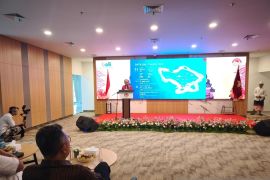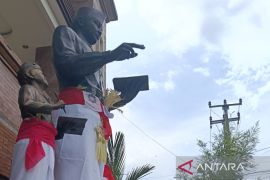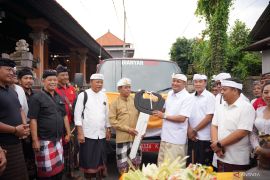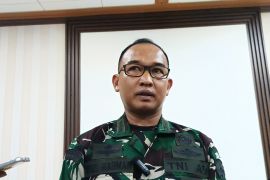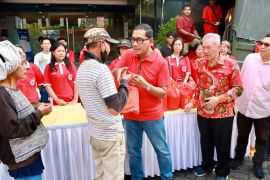Depok, W.Java (Antara Bali) - Students at the University of Indonesia have invented a technology called Real Time Telemonitoring System (RTTS) to check outpatients' health conditions distantly in real time.
The RTTS leader team, Rafi Kurnia, said here on Thursday that the high mortality rate, particularly in outpatients, was due to a delay in getting medical treatment, which has become one of the reasons behind the invention.
"We see that the availability of health facilities and hospitals is not enough to meet the need for health services," Rafi said, adding that outpatients need highly intensive medical check-ups after undergoing a critical condition.
The RTTS is a single board computer that is connected to the internet with a battery that can last for 13 hours and can be recharged.
The system helps people in remote areas to get in touch with medical specialists, who can advise them immediately.
RTTS, whose size is similar to a first-aid kit, weighs approximately two kilograms and has three sensors for monitoring patients with cardiovascular problems.
It is also designed in a way that comforts patients. For instance, the sensors do not hurt joints so as not to complicate the movement.
"RTTS is portable, ergonomic, easy to use and has an affordable price," Rafi said.
Rafi also explained that RTTS uses a telemonitoring system so that the outpatients' conditions can be continuously accessed in real time by medical personnel.
Vital information that can be obtained from RTTS, including an ECG (electrocardiogram), pulse and body temperature.
An RTTS processes data sensors, then transmits them into informative data and delivers them to the medical personnel using the internet.
Furthermore, medical personnel can monitor the patient's condition over time in real time via a website. This way one can anticipate the worst scenario that can develop and provide early medical treatment.
Rafi hoped the tool can also be used in remote and disaster areas and for outpatients so that they can be monitored by doctors periodically.
Besides Rafi from Computer Engineering, other team members are Claudia Khansa from Electrical Engineering and Dimas Hendrawan from Mechanical Engineering.
They have been developing RTTS since September 2015. The prototype of the tool will be completed soon and is being registered with the Directorate of Innovation and Business Incubator of the university for a patent. (WDY)


